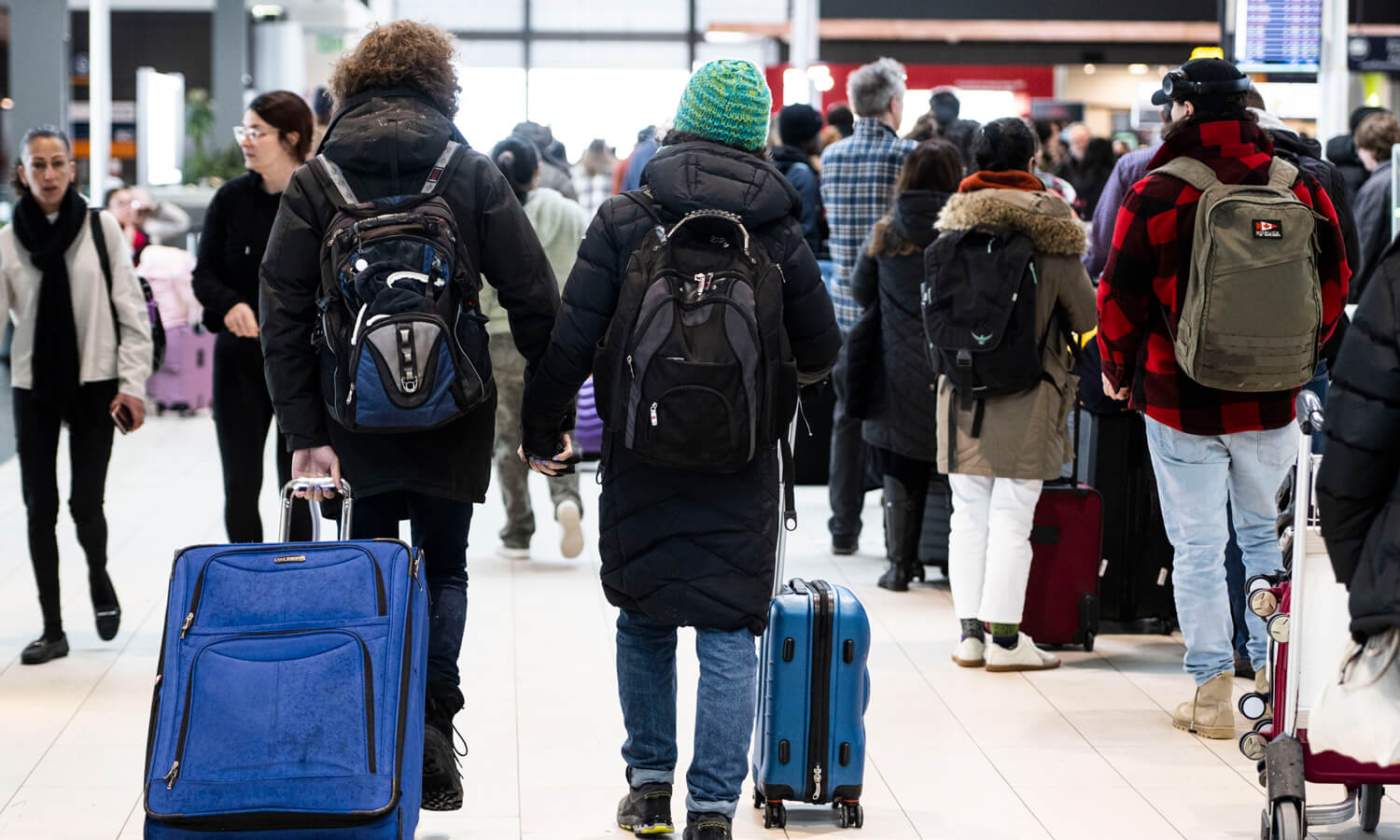Do airlines pay for hotels for flight delays in Canada?
The Canadian Transportation Agency’s amendments to the Air Passenger Protection Regulations, announced Saturday, would require carriers to provide meals to passengers whose flights are delayed at least two hours, along with overnight accommodation if necessary.
How long does it take for an airline refund when flight is delayed or cancelled?
Airlines would also have to provide refunds within 15 days, down from the current deadline of 30 days, if a passenger prefers to be reimbursed rather than to be rebooked when their flight is cancelled, delayed at least three hours, or they are bumped from the flight. That timeline shift is meant to better aligned with practices in the U.S. and the European Union, the federal agency said.
Featured credit cards
featured

Best for travel card
Scotiabank Passport™ Visa Infinite Card
Earn points on every purchase, pay no FX fees, and receive complimentary airport lounge access (with 6 annual passes).
GO TO SITE
Interest Rates:
20.99% purchase, 22.99% cash advance, 22.99% balance transfer
Welcome offer:
$250 value
Earn up to $1,100 in value in the first 12 months, including up to 35,000 bonus Scene+ points. To qualify, apply by December 31, 2024.
featured

Best for cash back
SimplyCash Preferred Card from American Express
Earn 4% cash back on groceries and gas. Plus get a flat 2% on all other everyday purchases.
GO TO SITE
Interest Rates:
21.99% purchase, 21.99% cash advance, N/A balance transfer
Welcome offer:
$250 value
Earn a bonus 10% cash back on all purchases for your first 3 months (up to $2,000 in purchases). Plus, earn a $50 statement credit when you make a purchase in month 13. This could add up to $250 in bonus value in your first 13 months.
featured

Best low APR card
MBNA True Line Mastercard credit card
An ideal option for cardholders looking to manage debt, the card’s low 12.99% APR is almost half the conventional interest rate found on most cards.
GO TO SITE
Interest Rates:
12.99% purchase, 24.99% cash advance, 17.99% balance transfer
What happens with weather delays?
Ottawa said exceptional circumstances include security threats, unscheduled airport closures, bird strikes, weather or aircraft damage that could affect flight safety, among other examples.
Changes to the Canada Transportation Act: Make rules clearer and more simple
The Canadian Transportation Agency has been working to amend regulations associated with the Canada Transportation Act since the Liberal government passed legislation last year aiming to tighten rules for passenger rights.
Those reforms put the onus on airlines to show a flight disruption is caused by safety concerns or reasons outside their control.
Previously, Canada’s passenger rights charter, which took effect in 2019, divided flight disruptions into three categories:
- Those caused by factors within the carrier’s control,
- disruptions within the carrier’s control but required for safety purposes,
- and those outside the airline’s control.
Passengers had only been entitled to compensation in the first of those categories. But the federal agency said that categorization system was too complex and led to “varied and differing interpretations” by air carriers and passengers, especially when a traveller’s request for compensation was denied or the reason for a flight disruption was not clear.
The agency said it received more than 150,000 air travel complaints since 2019 and many of those have gone unresolved.
“The proposed amendments eliminate grey zones and ambiguity about when passengers are owed compensation, which will ensure quicker resolutions for passengers.” https://t.co/GxdcRjFX43
— Anita Anand (@AnitaAnandMP) December 22, 2024
Transport Minister Anita Anand said the proposed amendments seek to simplify the rules for both travellers and air carriers. “The proposed amendments eliminate grey zones and ambiguity about when passengers are owed compensation, which will ensure quicker resolutions for passengers,” she said in a statement. “We will work to reach the right balance between protecting the rights of passengers and promoting a competitive air sector.”

